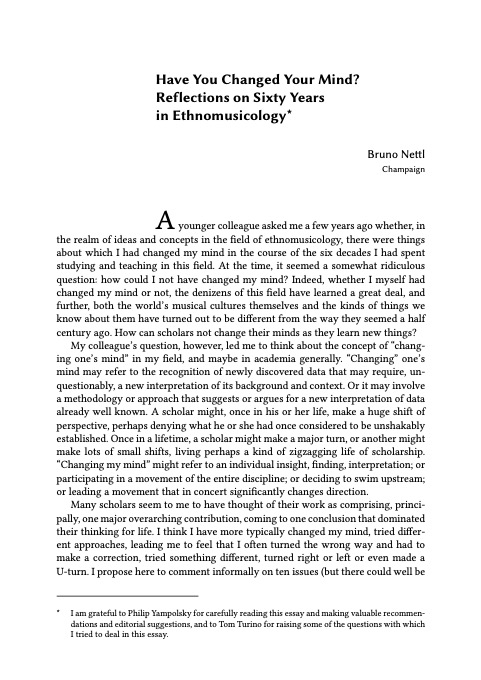Abstract
Looking back upon his career as an ethnomusicologist, the sixty years that in many ways run parallel to the postwar emergence and history of his field, Bruno Nettl examines the crucial ideas that were formative for his early years, but have both grown and changed with the field itself. With candor and wisdom, the author recognizes that certain fundamental concepts about music and its relation to human society remain intact, whereas debate and new forms of scientific investigation have made it necessary for other concepts to respond to the knowledge music scholars have gathered. Whereas new evidence and ideas have effected change widely, Nettl concerns himself specifically with ten areas in this article, ranging from the foundationally ontological—the definition and concept of music and the origins of music—to critical paradigms—Alan P. Merriam’s model of music in culture and concepts of improvisation—to the relations among the sub-disciplines of music scholarship—the ethnomusicological study of Western art music. By tracing the way we change our minds during the course of a career, music scholars expand the very ways we come to understand a rich and capacious intellectual history of our fields.
